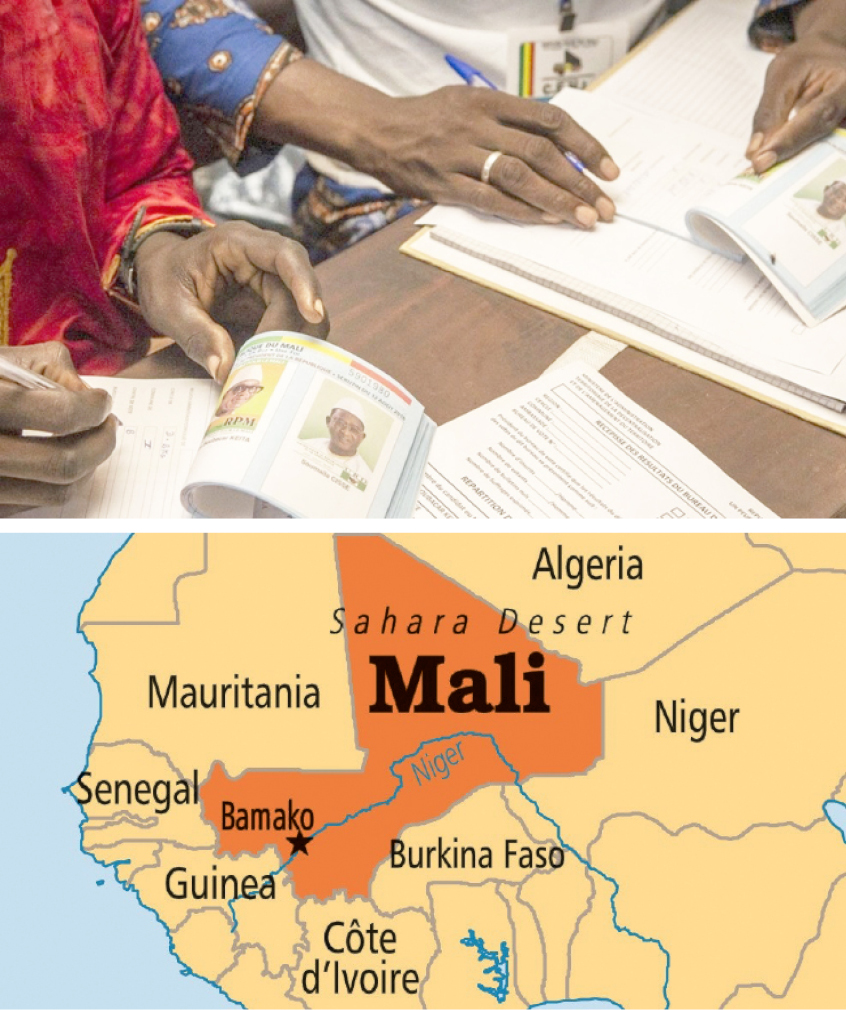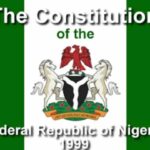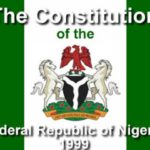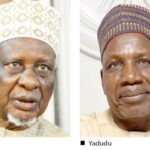Malians will today, in a referendum, decide on a fundamental constitutional proposition that will see to a transition of power to a civilian government in February 2024 after almost three years of a military junta.
The referendum, earlier scheduled for July 9, 2017, was postponed thrice before the military junta on May 5 announced in a decree that it will be conducted on June 18.
While some argue that the military junta does not have the legitimacy to hold a constitutional referendum, the president of the transition, Assimi GOÏTA sees it as “the culmination of a process of democratic renewal.”
Although the drafting of the new constitution was boycotted by some political parties, civil society groups, among other key stakeholders, Malians will be voting for or against the new constitution in a referendum.
- How litigations make Nigeria’s elections expensive
- Why Nigerian leather industry collapsed – Danyaro
Things to know about the draft constitution
To begin with, Mali is one of the world’s politically volatile country that has suffered several attempted and successful coups since its independence from France in 1960.
While the new draft constitution describes carrying out a coup d’etat as an offence, for which there is no time limit for prosecution, those involved in the 2020 takeover would be covered by an amnesty.
Powers of the president
In the draft constitution, the president, elected by direct universal suffrage is the head of state and head of the executive. The president, who is elected for five years, will be limited to two terms in office.
The president appoints the prime minister, the head of government, as well as the Council of Ministers after consultation with the prime minister.
The new constitution also empowers the president to determine the policy of the nation, while the prime minister and his government implement it.
The president may submit bills to the parliament and require it, through the government, to vote on a bill once, only on those amendments proposed or accepted by the government.
Under the draft constitution, the president may submit to a referendum any question of national interest or any bill relating to the organisation of state institutions after receiving the advisory opinion of the constitutional court.
Article 69 of the draft constitution also empowers the president to dissolve the National Assembly.
In addition, the president has significant discretionary powers of appointment in the civil and military administration.
While the president of the republic is the head of the executive branch, he is also the guarantor of the independence of the judiciary, and as such, chairs the Supreme Council of the Judiciary.
The draft constitution provides for an impeachment of the president by the legislature in cases of high treason through an onerous procedural requirement, however, the preliminary draft made public at the end of 2022, shows that provision of the constitution has been removed.
Controversial provisions of the draft constitution
Dual citizenship: The draft constitution excludes Malians with dual citizenship and citizens who have acquired their nationality through naturalisation from contesting for presidential election as only Malian nationals by birth without another nationality are eligible.
However, presidential aspirants with dual citizenship will be required to denounce their second nationality. But what if the candidate does not win?
Bicameral legislative system: The draft constitution also introduces a bicameral legislative system where the decision of the Senate takes precedence in the case of a disagreement between the two chambers. Critics argue that this will cost the Malian government more to run amidst the dwindling economic fortunes of the country.
Thirteen official languages: The draft constitution classifies Mali’s 13 national languages as official languages and French as a working language (Article. 31). This is considered to reduce the status of the French language. But in a multi-lingual country, this could result in chaos, critics argue.
Militarisation of civil space: The draft constitution also enables the army to participate in the ‘economic, social, and cultural development and environmental protection of the country.
For instance, the military will be responsible for ensuring ‘the enforcement of the law’ and will be able to leave the barracks if the law is violated, in this case by the civil power (Article. 89).
In a similar vein, Article 93 of the draft constitution mandates the civilian government to ensure that the armed and security forces have the human and material resources needed to carry out their mission. Observers deem this to be constitutionalising of coups d’état in Mali.
Mali as a secular state: The proposed constitution also officially designates Mali as a “secular state,” stating that secularism is not opposed to religion and free exercise of worship, and its objective is to promote and reinforce ‘living together’ (Article. 32).
Algiers agreement: While it is hoped that the new constitution would bring stability in Mali for two reasons: The establishment of an independent Court of Auditors—imposed by the West African Economic and Monetary Union (WAEMU)—and the inclusion of the Algiers Agreement (an agreement signed by the government of Mali and some armed separatist groups in 2015), the signatory groups of the Algiers Agreement oppose the draft because they believe it does not reflect commitments to the decentralisation of power.

 Join Daily Trust WhatsApp Community For Quick Access To News and Happenings Around You.
Join Daily Trust WhatsApp Community For Quick Access To News and Happenings Around You.


